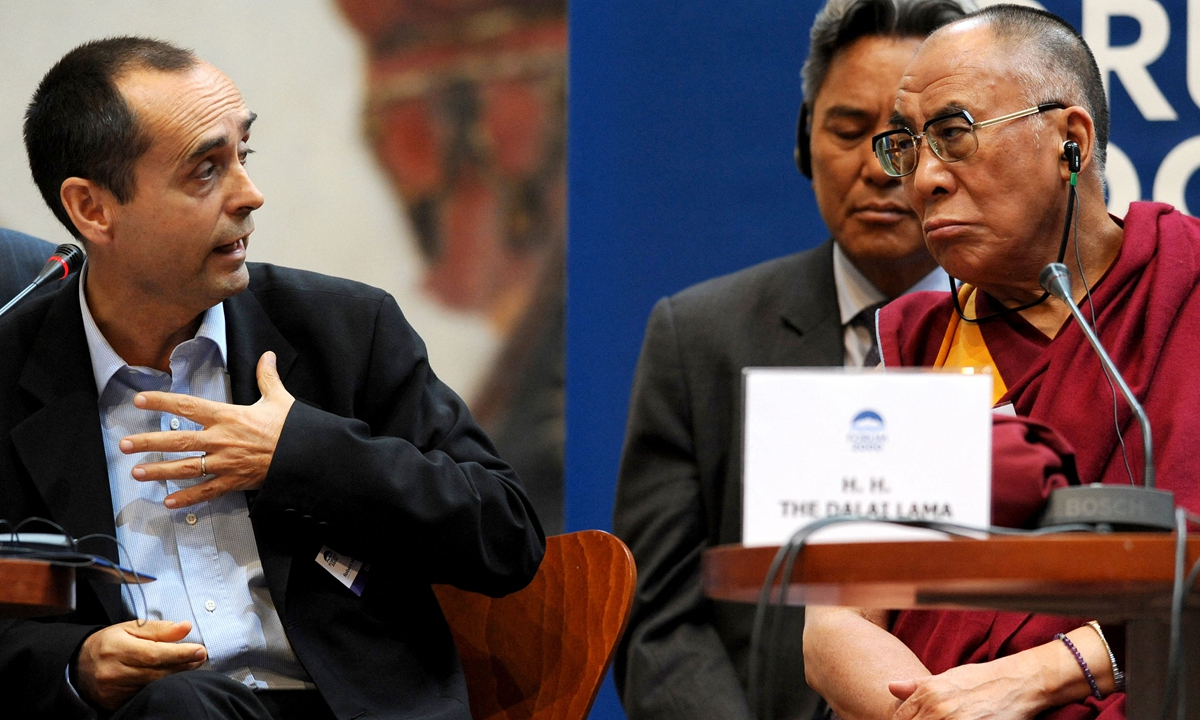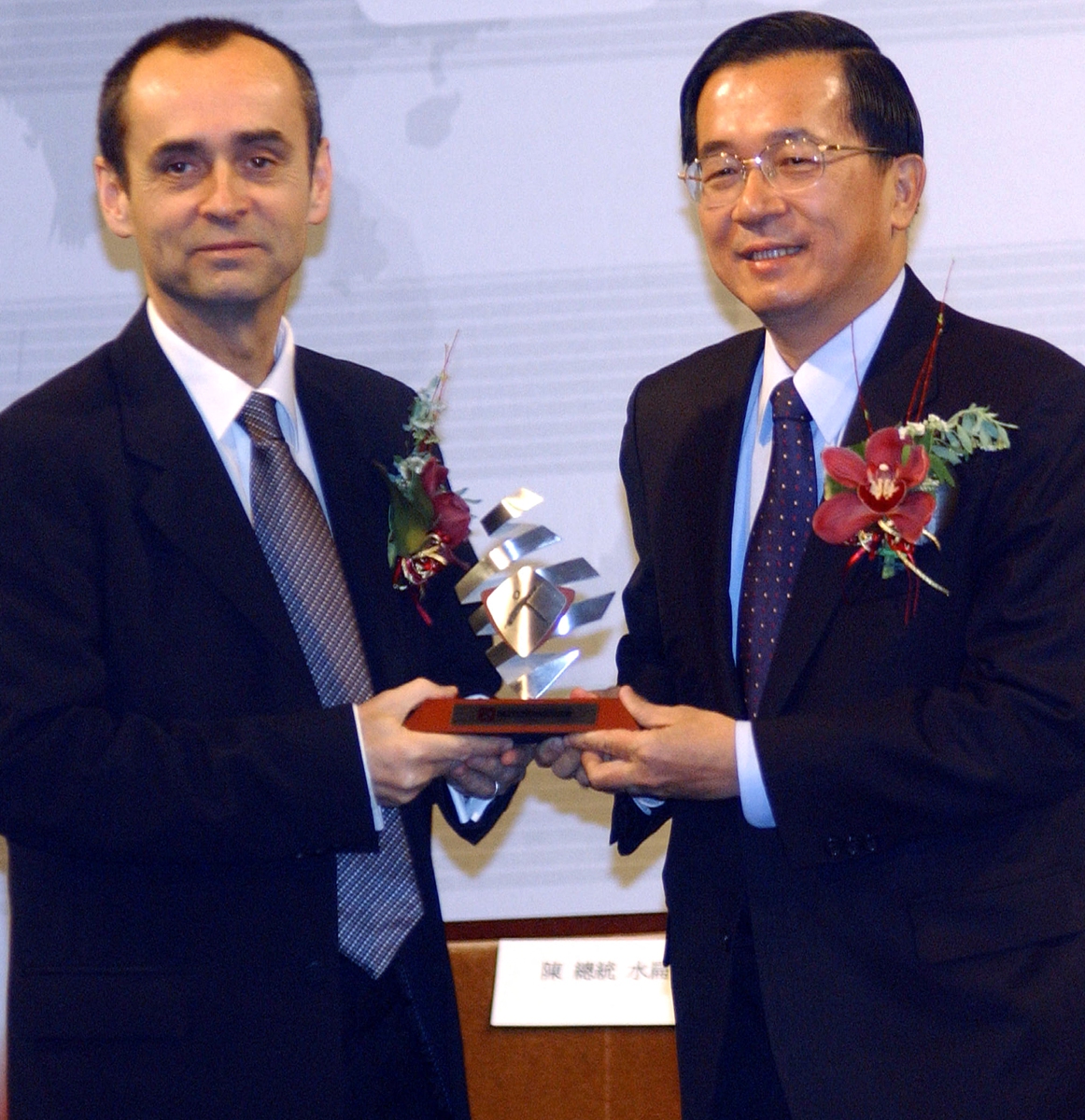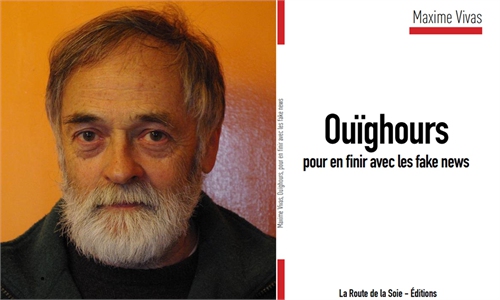IN-DEPTH / IN-DEPTH
Despised by media professionals, West-puppet Reporters Without Borders trains ‘journalists’ to disrupt Asian nations
Sugarcoated 'free' press

Photo: VCG
The notorious self-acclaimed journalist organization Reporters Without Borders (RSF) released its annual "press freedom index" in April. Not surprisingly, this neither authoritative nor professional group, having frequently showed the public its anti-China stance, ranked China fourth from the bottom. On May 3, the 30th anniversary of World Press Freedom Day, Cedric Alviani, head of RSF's East Asia Bureau, reportedly openly smeared China as the "worst enemy of freedom of the press and expression."
It is obvious that the ranking of press freedom done by this group, which is a very subjective and conjectural one, is entirely based on the political preferences of the founder, "a far-right person," said Li Haidong, a professor at the Institute of International Relations at China Foreign Affairs University.
Worse still, observers found that with support from the West, RSF in recent years has become more insatiable in actively meddling in the local media industry and training reporters, including so-called citizen journalists, in the island of Taiwan and other Asian regions in possible political turmoil or social crises.
"Under the disguise of journalism training, what RSF has done is actually a naked interference in the internal affairs of developing countries," noted Dong.
According to the financial statements published on RSF's website, it spent a total of 6.726 million euros ($8.18 million) in 2019 on "social missions," including training activities in several overseas offices to assist and support "journalists, bloggers, media, and organizations involved as partners carried out by a specific department in the Operations Division."
In Taiwan, RSF held a media forum on May 3, at which it defamed the media environment in Hong Kong as "deteriorating rapidly." Local separatists and anti-China journalists from Western countries including Sweden and Finland reportedly attended the forum.
Including China, RSF seems particularly active in developing countries while seldom carrying out activities in developed ones, said Steven Dong, professor and dean of the School of Government and Public Affairs under the Communication University of China.
"I suspect that it is no more than an institution sponsored by some developed Western countries to implement political propaganda in less developed areas, through constantly depicting the 'perfection' of developed countries and 'ugliness' of developing ones," Dong told the Global Times.

The Dalai Lama (right) reacts to a speech by Robert Menard, former secretary-general of Reporters Without Borders. Reporters Without Borders has been colluding with separatists against China. Photo: AFP
Cultivating mouthpieces
RSF is fond of regarding China as a main target of attack, with its members or partners frequently supporting separatist media institutions and individuals in China's Hong Kong and Taiwan regions, while suppressing and criticizing patriotic ones.
RSF awarded its "Press Freedom Prize" to the infamous Hong Kong media tycoon and secessionist Jimmy Lai Chee-ying last year, who was later sentenced to months in prison for crimes including attending and organizing illegal assemblies and colluding with foreign countries or forces to endanger national security. In Taiwan, it defended the local authority's rejection of the anti-secessionist CTiTV's request to renew its expiring broadcast license, saying the obstruction did not harm press freedom.
Training journalists "multimedia techniques," instigating them to "speak out" and to stand in opposition to the government, are also major ways that RSF attempts to upend some Asian countries and regions, experts told the Global Times. One of its goals is to transform these media persons into the mouthpieces of Western values and promoters of political or social instability in their own countries, they said.
In Taiwan, RSF colludes with secessionists in anti-China propaganda, said Belle Huang (pseudonym), a senior Taiwan media professional and a professor at the School of Communication of Ming Chuan University in Taipei. "It is currently working on two fronts: public anti-China rhetoric, and behind-the-scenes cultivation of its local supporters," Huang told the Global Times.
Huang noted that the second pathway has been more secretive, as they did not work with formal news organizations and professional journalists, but chose to work with several anti-China think tanks and foundations with close ties to the DPP to cultivate a younger force.
"Because those young 'observers' who had been slandering Chinese mainland like crazy on the internet were simple and impulsive, and are easily moved by the pretense of RSF's human rights and freedom," Huang said.
RSF opened its first Asia bureau in Taipei in April 2017. The RSF Taiwan office announced on its website that it is raising funds from July 2020 to July 2021 to hold various movements to "promote press freedom," including online campaigns, seminars, forums, exhibitions, and training workshops.
Moreover, since the establishment of the Taiwan branch, RSF has signed partnership agreements with Taiwan Media Watch (TMW) for many years in a row. Proclaiming itself an "organization independent of the government and political parties," TMW was revealed by many on the island as having strong "Taiwan independence" leanings, as some of its directors also sit on the boards of news outlets working as the DPP mouthpieces.
The lectures and workshops that TMW holds, in which members of RFS are regulars, only spoke passionately about lies to attack the Chinese mainland, Huang said.
In western and southeastern Asia, for several consecutive years, RSF has been inviting journalists from countries in "war and crisis" including Azerbaijan, Bahrain, and Myanmar to Berlin to "train them in digital security," RSF said on its website in July 2018.
Under a scholarship program funded by the German government, RSF claimed to teach these journalists to "protect themselves against hacker attacks," and asked them to pass on what they learned in Berlin to colleagues in their regions, and then "become local contact persons for issues related to digital threats."
RSF was active in training and cultivating media persons in a few Asian regions during their Western-promoted political transformations. The Global Times reporters found that in its December 2012 report titled Burmese media spring, RSF introduced the roles it played in supporting opposition reporters and initiating demonstrations in Myanmar's "democratization" process in the 2000s and the early 2010s, stirring up trouble and creating public opinion chaos in Myanmar society.
According to the report, RSF worked closely with political opposition groups such as Democratic Voice of Burma (DVB) and frequently appealed for multimedia technique training on journalists. It also openly recommended meddling by the international community and NGOs in Myanmar's then internal discord under the guise of "promoting media freedom."
Obviously, RSF does not truly engage itself in promoting freedom of the press, but is keen on political subversion and color revolutions in developing countries and regions including China, Li said. "They are the group behind groups that are anti-China forces in the West and Taiwan, who attempts to discredit China to cater to the right-wing Western politicians who always consider tougher policies against China," he noted.

Former regional leader of Taiwan Chen Shui-bian (right) gives an award to Robert Menard, then RSF head, in Taipei in 2007. Photo: AFP
Pupil grading university student
Established in Paris in 1985, RSF labels itself as a "defend freedom of expression and information without any political bias" group. Now the group has its tentacles scattered around the world through 14 sections and regional offices, and has correspondents in more than 130 countries.
Continually branding itself as a globally influential journalist organization though, RSF has long been criticized by the public for lacking basic authority and professionalism in the media industry.
"An interesting thing is that I personally know many famous media persons, including Pulitzer and Emmy Award winners, but none of them seem related to RSF, nor does RSF 'recognize' their works," said Dong, who has had worked for several renowned international media outlets and universities such as Harvard. "As far as I know, none of the excellent Chinese reporters are RSF members, either," he added.
"I have to be skeptical about the professionalism of such a group that is detached from both outstanding Western journalists and Chinese ones," Dong told the Global Times, saying that RSF is far from qualified and authoritative to judge and rank the press freedom of countries and regions worldwide. "Like a pupil grading a university student," he said.
Ironically, such clown-like organizations, which actually have little in terms of reputation in the global media industry, are frequently hyped up by some right-wing Western politicians and anti-China forces, who utilize RSF's unreliable reports and rankings to defame China and other developing countries, international relations scholars noted.
"What the Western political forces value is that RSF can help them intervene in subversion in the non-Western world," Li told the Global Times. "That's why they fund and back such a biased and unprofessional group."
"What the Western political forces value is that RSF can help them intervene in subversion in the non-Western world," Li told the Global Times. "That's why they fund and back such a biased and unprofessional group."
The RSF has long acted as a hitman for US-led Western countries, employing rampant behaviors against countries they collectively see as a thorn in their side.
The Global Times found that its financial supporters are mainly comprised of Western government-backed organizations, institutions, and foundations, which serve Western interests and export Western ideology under the guise of an NGO.
For example, the National Endowment for Democracy (NED), which RSF said has supported its reporting of media freedom violations throughout the world and especially in Asia, is a notorious anti-China foundation that has been discovered to have spent more than $10 million to fund secessionist organizations and subversive activities in China in 2020.
Observers commented on RSF as a 100 percent anti-China group. The first time it was known to the Chinese public was in 2008, when its members protested and even violently obstructed relay events in Athens, Paris, and London during the 2008 Beijing Olympic torch relay overseas, which prompted the Greek government to condemn the misconduct of RSF members, Reuters reported in March 2008.
Maxime Vivas, a French writer and journalist, revealed that the organization also received financing from the US' Central Intelligence Agency (CIA).
In his book The Hidden Face of Reporters Without Borders, Vivas called RSF a lumbering plane with a golden propeller that drops heavy bombs on small nations that refuse to submit, and throws bait at liberal bigwigs, using an endless array of tricks to attract the attention and money of kind people.
Diana Barahona, an American independent journalist, in 2006 published an investigative piece in the US' CounterPunch magazine, pointing out that RSF had played an important role in instigating riots or coups in countries such as Cuba and Venezuela.
A Taiwan online media outlet that focuses on social movements has pointed out that the French government used to give 2 million euros ($2.42 million) to RSF annually, but only 7 percent of it was used to carry out the task of rescuing oppressed journalists. Its main activities were supporting opposition groups that would act against countries that the west, especially the US, found to be a nuisance.
Since RSF was rewarded a medal and a beautiful check worth US$100,000 by the then Taiwan leader Chen Shui-bian, Taiwan has since been listed among "the world's top states and regions with press freedom."
Without any impartiality, objectivity, or balance - the basic principles of journalism - RSF is definitely not an independent journalist institution, but a loudspeaker for the West, being bought off by politicians, Dong concluded. It is a tool that the Western world uses to restrain developing countries during their climbing stages, he said.
"Through propaganda, it intends to disaggregate the social governances of these countries when they are in the middle-income trap, containing the developments of these countries to make them continue to be the West's cheap raw material providers," Dong remarked.

